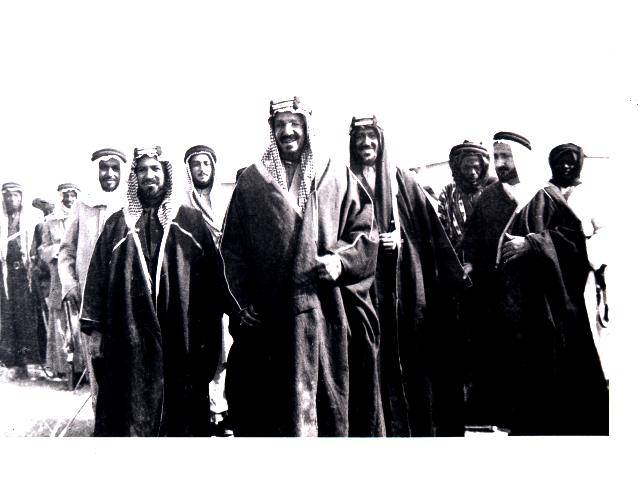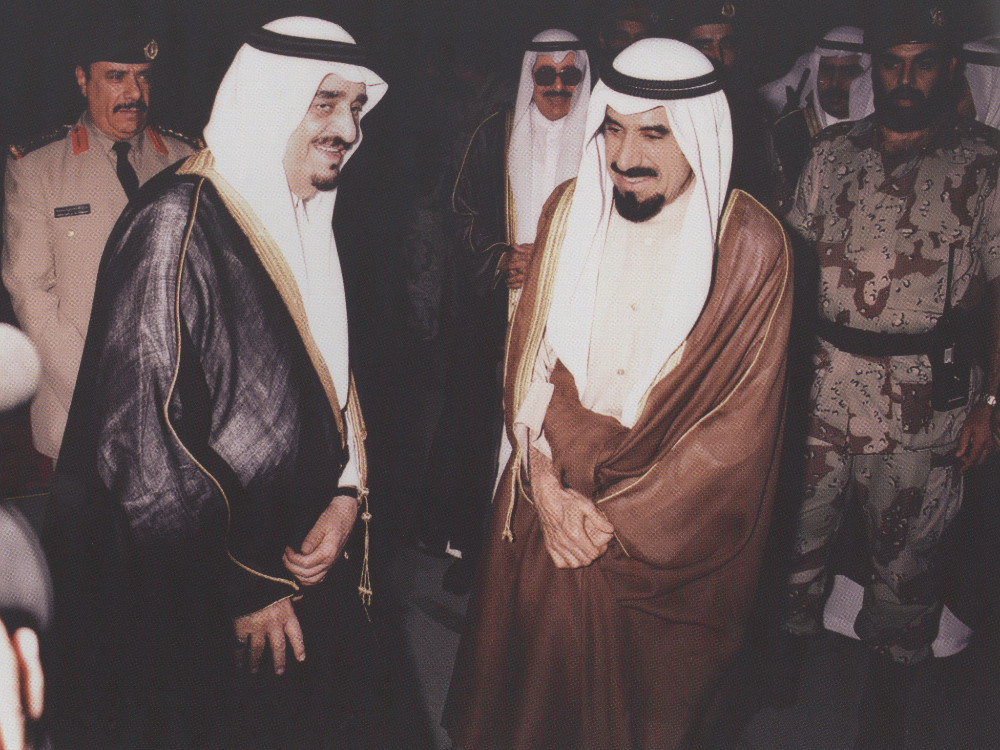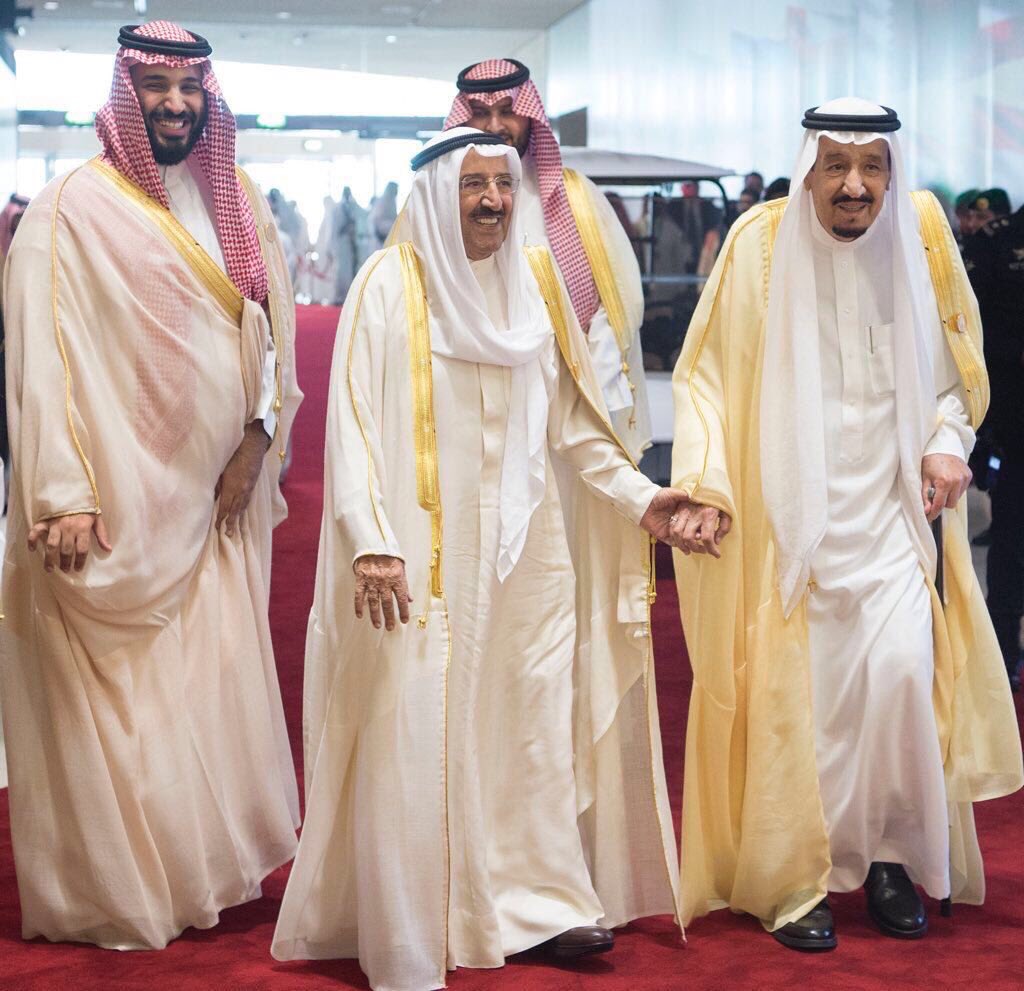Saudi-Kuwaiti Relations
The Saudi-Kuwaiti Relations refer to the diplomatic relations between the Kingdom of Saudi Arabia and the State of Kuwait. Their beginnings date back to 1893, thirty-nine years before the unification of Saudi Arabia. These relations emerged from Saudi Arabia's foreign policy perspective, which is based on seeking relationships that serve the country's interests and diversifying diplomatic connections with all nations in accordance with the principles on which Saudi Arabia is founded.

The history of Saudi-Kuwaiti relations
The Saudi-Kuwaiti relations are distinguished by their significant historical depth, as the two nations share longstanding ties that predate the establishment of the Gulf Cooperation Council (GCC). These relations were solidified when Imam Abdulrahman Bin Faisal Al Saud, along with his family and son Abdulaziz, resided in Kuwait in 1893, prior to King Abdulaziz Bin Abdulrahman Al Saud reclaiming Riyadh in 1902.
King Abdulaziz Al Saud visited the State of Kuwait on several occasions: in February 1910, November 1916, and January 1936. He signed several international agreements, including the Agreement of al-Uqayr on December 2, 1922, which delineated the borders between Saudi Arabia and Kuwait and established a neutral zone between the two countries.
The bilateral relations between the two countries continued to strengthen, with an agreement signed on April 20, 1942, aimed at organizing political, economic, and security relations between the two nations.
Saudi support for Kuwait was also evident during its independence in June 1961. King Saud Bin Abdulaziz initiated the establishment of the first diplomatic representation to strengthen Kuwait's independence. Saudi Arabia's ambassador was the first to present his credentials among the ambassadors in Kuwait. Additionally, Saudi Arabia played a role in supporting Kuwait's accession to the Arab League.
The importance of Saudi-Kuwaiti relations
The relationship between Saudi Arabia and Kuwait represents a strong guarantee for Gulf and Arab national security due to their aligned perspectives on many regional issues and their bilateral cooperation in addressing shared challenges. Their stances have consistently aligned on key Arab issues, including combating terrorism and extremism, developments in conflicts in some Arab regions, and countering the activities of terrorist organizations in Iraq, Syria, Lebanon, and Yemen.
Saudi Arabia and Kuwait are strategically allied nations, and the relationship between the governments of Riyadh and Kuwait contributed to the establishment of the GCC. Both countries play a pivotal role in maintaining cohesion within the GCC framework, exercising significant leadership in preserving peace in the Middle East and globally, as well as in combating terrorism and its supporting forces. They are also part of the Arab coalition formed at the request of Yemen's legitimate government.

Saudi Arabia's role in confronting the Iraqi invasion of Kuwait
The year 1990 marked a pivotal moment in the history of relations between the two countries. Under the leadership of King Fahd Bin Abdulaziz, Saudi Arabia made a critical decision to confront the Iraqi invasion of Kuwait on August 2, 1990. Saudi Arabia spearheaded the establishment of an international coalition to repel the aggression, culminating in Kuwait’s liberation in February 1991, following an invasion that lasted nearly seven months. During that period, Kuwait’s legitimate government, led by Sheikh Jaber al-Ahmad al-Jaber al-Sabah, was based in Taif City, while Saudi citizens opened their homes to welcome Kuwaiti refugees fleeing to Saudi Arabia.
This decisive action by King Fahd became symbolized by his famous statement: "Life and death have become equal for us after the occupation of Kuwait. There is no longer Kuwait or Saudi Arabia; rather, there is one country. Either we live together or perish together. Either Kuwait and Saudi Arabia remain, or both will cease to exist."

The development of Saudi-Kuwaiti relations
Throughout the history of bilateral relations between Saudi Arabia and the State of Kuwait, the ties between the two nations have continued to grow and evolve across various fields. This progress was evident in July 2018 when the Saudi Council of Ministers approved the establishment of the Saudi-Kuwaiti Coordination Council. The agreement was signed just twenty-four hours later during a meeting held in Kuwait, aimed at supporting intensive bilateral efforts and enhancing joint collective action.
The bilateral relations have consistently received support from the leadership of both countries. During the visit of His Royal Highness Prince Mohammed Bin Salman Bin Abdulaziz, crown prince and prime minister, to Kuwait in September 2018, these relations were further strengthened, reinforcing the deep historical ties between the two nations. This was followed by another visit in December 2021.
In line with the exceptional relations between the two countries, significant efforts led by Crown Prince Mohammed Bin Salman Bin Abdulaziz resulted in the signing of a supplementary agreement to the Agreements on the Partitioned Zone and the Submerged Zone Adjacent to the Partitioned Zone on December 24, 2019. A memorandum of understanding was also signed regarding procedures for resuming oil production on both sides. These agreements decisively and permanently resolved the issue of the Partitioned Zone, enabling the resumption of production and generating billions in economic benefits for both nations.
Reaffirming the deep historical ties and strengthening bilateral relations and the strategic partnership between Saudi Arabia and Kuwait, His Highness Sheikh Mishal al-Ahmad al-Jaber al-Sabah, Emir of the State of Kuwait, paid an official visit to Saudi Arabia in 2024. This marked his first foreign visit since assuming the Emirate of Kuwait.
Economic relations between Saudi Arabia and Kuwait
Kuwait is one of Saudi Arabia's most significant trading partners in the Arab region, particularly within the Gulf. Since the establishment of the GCC in May 1981, the two countries have signed several joint Gulf agreements. Among the most notable are the agreement on the Gulf Railway Project and the Unified Economic Agreement between the GCC member states. This was followed by the establishment of the Gulf Investment Corporation in October 1983, along with significant joint Saudi-Kuwaiti projects.
In line with Saudi Arabia and Kuwait's commitment to elevating trade exchange to a higher level, the volume of trade between the two countries grew during the period from 2010 to 2019, reaching SAR82.344 billion. In 2021, the trade volume reached SAR6.993 billion, with exports valued at SAR5.384 billion and imports at SAR1.609 billion. The trade volume increased to approximately SAR11 billion in 2022.
Saudi Arabia and Kuwait are working to enhance cooperation in several fields, including:
(1) Energy efficiency: Improving energy efficiency, rationalizing consumption, and developing capabilities in this area.
(2) Electricity and renewable energy: Electrical energy trade through grid interconnection, and developing and sustaining supply chains for energy sectors.
(3) Marine environment protection: Promoting trade exchange between the two countries in this domain.
(4) Communications and technology: Digital economy, innovation, and space exploration.
(5) Judiciary and justice.
(6) Transportation: Cooperation in air, land, rail transport, ports, logistics services, and civil aviation.
(7) Culture: Organizing joint activities, events, and cultural seminars.
(8) Tourism: Promoting joint efforts to build tourism capacities and boost tourism in both countries and the region.
(9) Sports: Enhancing partnerships in sports programs and activities.
(10) Higher education and scientific research: Encouraging direct scientific and educational relationships between universities and research institutions.
(11) Media: Strengthening partnerships to combat misinformation and improve the reliability of media content by adopting global best practices.
(12) Health: Enhancing collaboration between healthcare institutions and private sector companies in both countries.
(13) Finance: Sharing expertise and experiences in implementing financial reforms, diversifying income sources, and enhancing the efficiency and transparency of public finances.